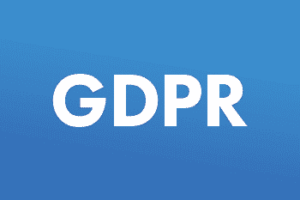Today’s best mobile application platforms will include comprehensive mobile app analytics tools to provide users with important insights into user behaviors, app functionality and beyond. Mobile app analytics offer extremely useful information, including the types of insights and metrics that you’ll need to enhance your mobile app and improve the user interface and user experience (UI/UX).
While it’s possible (and beneficial) to integrate third-party analytics into your mobile app platform, the most useful metrics can be generated by a custom-built app analytics and metrics interface. This can make for a complex app build, so it’s vital that you work with mobile app developers who have experience integrating a robust analytics and metrics platform for your application.
How Does a Mobile App Analytics Platform Work?
All analytics platforms work in more or less the same way. It’s critical that you have an understanding of the general purpose and functionality because it has a major impact on the development process. Let’s look at how mobile analytics platforms work:
- Your developers will identify the exact types of data that will be collected.
- The developers create a script to send that raw data to your data lake or other data repository, where it is stored indefinitely.
- An analytics engine is developed to process the data, creating charts, graphs, reports and other visualizations that are essential for making sense of the raw data.
- The analytics engine’s user interface (where all of the reports, visualizations, etc. can be generated and viewed) may be integrated into the app in an administrative region of the mobile app platform. Alternatively, you may choose to place the analytics portal on a stand-alone platform.
What’s Included in the Best Mobile App Analytics Tools? — UI/UX
A well-crafted mobile analytics platform can generate a vast range of different metrics, with the precise nature of this data varying according to the exact type of app platform that you’re seeking to build.
Virtually all mobile app analytics platforms should include data about UI/UX, as this data is key for improving the app interface and improving productivity and efficiency over time. This can include:
- Information on the duration and frequency of app usage.
- Data about which app features are being utilized, how long they’re being used and who is using them.
- Data on which features in the mobile app are being ignored or under-utilized, as this can provide your development team with key insights into how the app can be improved.
These user metrics are difficult to accurately self-report, so analytics can bridge this gap by automating the collection of key data. The data is sent to a data lake or other data repository where it can be analyzed and interpreted by a custom-built analytics engine. At the end of the day, this is the sort of data that can be used to build a more profitable, efficient mobile app — whether you have an enterprise app for business or an app that’s available to the public.
Analyzing Other Data Types in an Enterprise Mobile App
Many enterprise mobile apps will collect data that requires further analysis in order to be truly useful. The talented development team at 7T can make this a reality by integrating custom analytics and metrics functionalities into your new app interface.
Let’s say you’re building a manufacturing plant mobile app that will streamline the process of monitoring and running the facility’s machinery and equipment. In this environment, you would need some unique metrics and analytics to optimize operations, such as:
- Information on which machines are being utilized and the duration of use for each piece of equipment.
- Metrics on production volume and the speed of production;
- Data on machinery performance, stoppages and unplanned downtime.
- Data on quality control fails for items produced by the machinery.
- Information on equipment maintenance and how long a piece of machinery can run until it requires more attention from the maintenance team.
These are just a few examples of the unique insights that would be beneficial for a manufacturing mobile app. Each industry is unique, so this is where you’ll want to work with an experienced mobile app and analytics developer to determine what data and metrics would be most relevant to your business.
Building a Custom Mobile App Analytics Platform
If analytics are a key component of your long term mobile app development strategy, then you’ll be best-served by an app development team that can integrate key features into your mobile platform during the initial build.
It’s possible your app will need to collect and send key data points to a data lake, where it can be stored until an analytics platform pulls data from the pool of data for analysis. There’s also the matter of building a mobile app analytics platform that processes data and renders visualizations in an easy-to-understand way.
You’ll also need to consider how and where you’ll store your raw data and analytics data / metrics. Most of today’s companies are opting for cloud-based analytics due to the affordability, security and scalability of cloud infrastructure.
These are all points that ought to be taken into consideration during the mobile app development process, even if you don’t plan on building an analytics engine in time for the initial app release. Remember, adding new features to an existing app platform down the road can be more complex, time-consuming and costly.
At 7T, our product Sertics is designed to provide clients with the robust data governance infrastructure they need to make a secure and efficient custom mobile apps analytics engine. Our team members can also integrate third-party tools into your platform, such as data from Apple Analytics, which could be useful if you’re going to be making your iOS app publicly-available for download in the App Store. Of course, App Store data is only available for iOS mobile apps. So if you’re developing for other devices, you may consider leveraging a third-party platform such as Firebase Analytics or App Center Analytics. These tools work for both Android and iOS.
As a cloud integration service provider, 7T works with businesses to host their ERP software, mobile apps, data lakes and other digital platforms in a cloud environment. Additionally, as a certified Snowflake partner, 7T develops and implements cloud migration strategies for businesses that are looking to implement Snowflake data solutions.
If you are looking for a mobile app development partner with experience in the realm of mobile analytics and metrics, then 7T is ready to help. We’ll get to know the ins and outs of your business; then, we’ll develop a robust analytics platform development plan that will elevate your ROI. To schedule a consultation session, fill out the interest form below or contact the team at 7T today.









